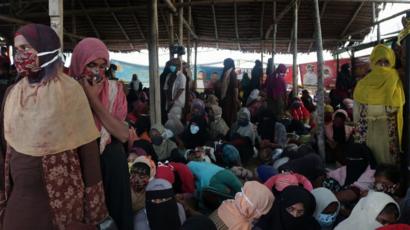Earlier this year the world watched as COVID-19 devastatingly swept through Italy. At the time, Italy was the epi-center of the pandemic and was under the lens of many western cultures to learn from.
Only a few months earlier, before the world could even comprehend what a global pandemic would entail, a young, left-wing organization known as the Sardines, was protesting in piazzas over a politician who was not even in power. Matteo Salvini, the leader of the far-right, dominant party, the League, has become incredibly influential in Italy due to his anti-immigration and anti-muslim ideologies. Italians have embraced Salvini’s views towards immigrants, refugees, etc., and although the next Italian national election is a few years away, Salvini is expected to be the next prime minister.Today, Italy has not forgotten their dark days with COVID-19, as it suffered a large fatality rate of 12.3% and has gradually opened with many precautions in place. Salvini has used his view on immigrants and how they have pertained to COVID-19 to continue his anti-immigrant agenda. Many areas of Italy, such as Sicily, are not accepting immigrants due to the fear imposed by the media that immigrants are allowing COVID-19 to flourish in Italy. However, only 3-5% of positive cases in Italy are due to migrants and refugees, unlike the 25% that is a result of tourism. Salvini has also called on his supporters to protest the arrival of immigrants at ports, stopping them from being able to get off their ships, instilling in them that immigrants are a great threat to Italians in terms of COVID-19. Salvini’s influence has played a massive role in the capacity in which centers can account for taking care of migrants as well. For example, centers used to receive roughly 35 euros a day per migrant, now they are only provided 19 euros a day. This cut in funds has had profound effects on refugee centers that are now overcrowded, dirty, and a place for COVID-19 to spread with little consideration on the wellbeing of migrants.
Italy’s prime minister is determined through appointment by the party with the majority. In the coming years, it will be interesting to see if the League rises to be the majority in the government and if Salvini will be appointed to be the prime minister. Italians are eager to support Salvini’s anti-immigration views and have continued to do so in the era of COVID-19.
Credit: Fabio Bucciarelli from The New York Times (https://www.nytimes.com/2020/08/28/world/europe/coronavirus-italy-migrants.html)
Credit: The Independent, Statista (https://www.independent.co.uk/news/world/europe/europe-immigration-most-anti-immigrant-countries-italy-france-germany-uk-a7460301.html)
Sources:
https://www.nytimes.com/2020/08/28/world/europe/coronavirus-italy-migrants.html
https://ourworldindata.org/coronavirus
https://www.britannica.com/place/Italy/The-legislature#ref258796








